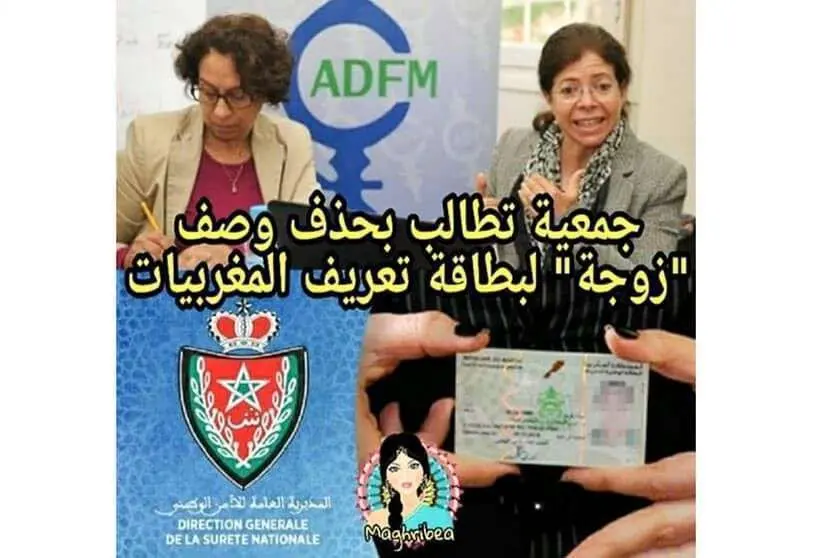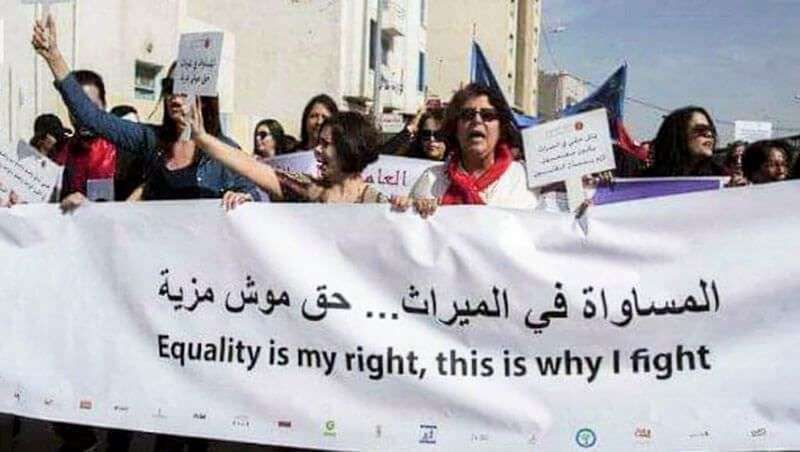La Asociación Democrática de Mujeres de Marruecos insta a revisar la Ley 04-20 claramente discriminatoria hacia las mujeres

On 15 August last a communiqué was issued by the Democratic Association of Moroccan Women on Law 04-20 on the electronic national identity card, another law relating to discrimination against women in the Kingdom of Morocco. After having examined the Law 04-20 on the electronic national identity card (ISCED), published in the Official Gazette n. 6907 of August 10, 2020, and despite the fact that the Association welcomes the positive measures introduced by this new generation of electronic national identity documents, it nevertheless considers the gaps in this law to be deplorable, including the absence of the Amazigh language, the official language in Morocco, and other clear discriminatory and harmful features for women.
Furthermore, with regard to its area of intervention, particularly in monitoring the conformity and harmonization of laws and public policies with Morocco's constitutional and international commitments to equality between men and women, ADFM expresses its deep concern about the discriminatory provisions contained in Act No. 04-20. These include the following:
The last paragraph of article 4, concerning the possibility of having their marital status included in ISCED, only affects women and exempts men unless they are widowed insofar as this article indicates the possibility of including the optional expression "wife", "widow" or "widower" in ISCED by omitting to mention the noun "husband".

Article 5(2) on 'information on the microchip' and Article 13 on 'cases requiring the renewal of ISCED' take up the same wording, thus exempting married men from the possibility of having their marital status included in ISCED under the same conditions as married women.
ADFM therefore regrets the adoption of the above-mentioned provisions and expresses the need to denounce the implicit discrimination in the law, since these provisions perpetuate gender discrimination and institutionalize inequalities. This text exempts men, unless they are widowed, from declaring their family status, but not women. The ADFM and many Moroccan feminists wonder : is this provision intended to favour polygamy ? The reality is that in legal matters, article 19 of the Constitution provides for equality in all rights between women and men, but the addition of "wife" and not "spouse" in the information requested clearly distinguishes between male and female citizens, promotes discriminatory principles typical of a patriarchal society and consolidates the concept of "kiwama - guardianship", which is so paternalistic to the detriment of women, infantilizing them to the point of assuming that they need to be protected by a man. It seemed discriminatory enough that apart from our female parent in our ISC, only our male grandparents were mentioned as our parents' parents, without mentioning our grandmothers' names, and in the knowledge that in Morocco we only have the right to one surname, that of our father.
The electronic national document refers to the identity of the person, regardless of his/her family situation, which is duly recorded in other documents, including the civil status book. While the new ISCED aims to facilitate the administrative procedures of citizens by exempting them from the obligation to present birth, residence, life and nationality certificates, the addition of information on marital status would complicate these procedures and entail additional financial costs, particularly for women who change their marital status.

The above measures will encourage the service to require women who wish to obtain an ISCED to justify their family situation, but not men. The adoption of this law by both Houses, despite the direct and explicit discriminatory provisions against women, is an indicator of the poor appropriation by representatives and representatives of the nation of the principle of equality advocated by the Moroccan Constitution.
Therefore, ADFM considers that the provisions contained in Law 04-20 are a violation of the provisions of the Constitution and of the achievements that women have made with the reform of the Family Code to end the era of guardianship that women have endured for centuries. This prompts the Democratic Association of Moroccan Women, ADFM, to seek "a review of Law 04-20 by the legislator with a view to bringing it into line with the constitutional provisions on combating discrimination based on sex".









